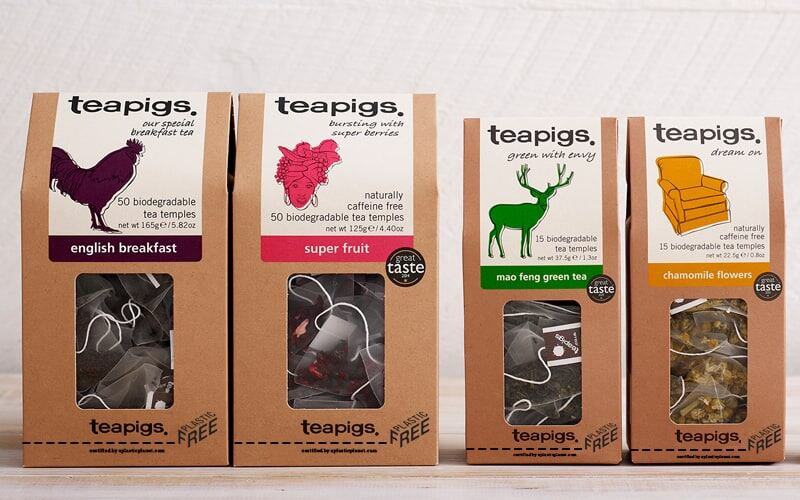The logo was designed by environmental group A Plastic Planet, whose mission is to dramatically reduce the use of conventional plastic, with a particular focus on plastic packaging used for food and drink.
It also campaigns for supermarkets to introduce aisles of plastic-free products.
The logo, launched this week, can be added to products packaged in specific, Trust Mark-accredited materials, including carton board, wood pulp, glass, metal and certified-compostable biomaterials.
Manufacturers can use the logo free of charge.
In order to be eligible, products must have a minimum of 99% plastic-free packaging and be approved by experts from A Plastic Planet according to the group's materials evaluation criteria.
"The allowance of up to 1% plastic is to allow for tiny amounts of plastics found in glues, labels, and colourings. Plastic-free includes certified EN 13432 compostable biomaterials," a spokesperson for the campaign group told us.
UK retailer Iceland will add the logo products in its private label range including fresh eggs, cottage pie and vegetable burgers, with soft fruit, mushrooms and potatoes to follow suit this summer.
The supermarket chain expects to achieve a 600 tonnes annual reduction in plastic usage from these products alone.
Director of corporate affairs at Iceland Keith Hann said the proportion of the range carrying the logo will “steadily increase” over the coming years as the retailer moves towards its goal of eliminating single-use plastic packaging from all its own label products by 2023.
“With the grocery retail sector accounting for more than 40% of plastic packaging in the UK, it’s high time that Britain’s supermarkets came together to take a lead on this issue,” said managing director for UK frozen food retailer Iceland Richard Walker.
Dutch supermarket Ekoplaza, the biggest organic retailer in the Netherlands, which launched a plastic-free aisle earlier this year, has also signed up. Its CEO, Erik Does, said the label would give consumers "an easy choice".

UK tea brand founded in 2006, Teapigs, will also add the logo to its entire range later this year.
Synthetic polypropylene is often used in teabags as a ‘glue’ that holds the bag together and can withstand the high temperature of boiling water.
Teapigs’ biodegradable triangle-shaped teabags are made of corn-starch while the transparent inner bag is made from wood pulp-based Natureflex that is also suitable for home composting.
The company said: "Designed to sit clearly on the front of the pack, the Trust Mark will instantly inform and empower consumers to make plastic-free choices. The confusion around different logos, and abundance of plastic packaging in the supermarkets means that those with innovative packaging will be nice and easy to spot."
Unilever recently announced plans to replace plastic in its UK PG Tips range with plant-based alternatives, scheduled to be complete by the end of the year.
